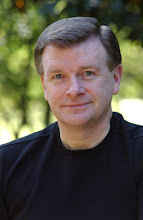When I read the following article, I was compelled to share this story with friends who care about the nations and would join me in praying for Ivory Coast. We continue to encourage the Western Church to be informed and involved in the activity of God around the world. Our compassion must not stop at our boundaries of personal concern and comfort. Milfred Minatrea
The article is provided by ASSIST News Service and written by Elizabeth Kendal (Religious iberty Prayer Bulletin (RLPB) 085).
AUSTRALIA (ANS) -- Like Sudan and Nigeria, Ivory Coast sits atop a volatile ethnic-religious fault-line. Whilst the less-developed North has long been predominantly Muslim, the South -- Ivory Coast's economic and political engine -- has historically been predominantly Christian and African Traditional Religion (ATR). Decades of mass immigration (1960-1993) from the neighbouring Muslim states of Burkina Faso, Mali and Guinea might have been great for the economy, but they have tipped the demographic balance so that Ivory Coast -- officially about one-third Muslim -- is actually majority Muslim.
The civil war that erupted in September 2002 was portrayed by the international media as a crisis of democracy and human rights caused by Southern xenophobia and Islamophobia. In reality, Ivory Coast's crisis is the consequence of decades of mass Muslim immigration coupled with political ambition and an internationally-sponsored Islamic agenda. The civil war was fought essentially between those who want all Ivory Coast's Muslim immigrants naturalised -- giving Ivory Coast a Muslim majority overnight -- and those who do not. Though he denies it, former Prime Minister Alassane Ouattara, a Northern Muslim, was doubtless behind the September 2002 failed coup that triggered the war. Ouattara and his party, the Rally of the Republicans (RDR), have been playing the race and religion cards for political gain. Ouattara's intent has been to have all the Muslim immigrants naturalised (over 4 million: estimated to comprise between 30 and 40 percent of the total population) so that he (their champion) can dragnet the Muslim vote. Ouattara has long had his eye on the presidency.

AP Photo
The civil war left Ivory Coast totally polarised, split between a virtually ethnic-religiously cleansed, rebel-controlled Muslim North and a government-controlled predominantly Christian, non-Muslim South. Since the war the North has been in serious decline with AIDS, poverty and lawlessness increasing exponentially. In November 2004 Ivory Coast's Christian president, Laurent Gbagbo, launched surprise airstrikes against rebel positions in the North in an attempt to reunify the country. However, former colonial power France (which backs the rebels for economic gain) intervened, razing all IC's airforce planes, destroying runways and sending tanks against the Presidential Palace, around which loyalists formed a human shield.
The West had insisted that Ivory Coast could be reconciled, reunified and essentially saved by means of democratic elections, such is their faith in 'democracy' and the inherent goodness of man. In reality, the divisions are so profound and the stakes are so high that, unless genuine reconciliation occurred first, elections could only trigger conflict. Elections were held on 28 November 2010, with both Gbagbo and Ouattara claiming victory. The US, European Union and African Union have recognised Ouattara as the winner and called for Gbagbo to respect democracy and step down. Russia meanwhile is blocking a UN statement that would recognise Ouatarra, saying that this is not the UN's role. Ivory Coast's non-Muslims are traumatised, fearing that their homeland -- once the most prosperous 'Christian' nation in West Africa, home to the region's largest cathedral, home-base to most of West Africa's regional Christian ministries -- is about to come under Muslim political domination.
(COMMENT: Ivory Coast's crisis -- the consequence of decades of Muslim mass immigration -- is a foretaste of what several states in democratic Europe may be facing in a generation or two.)
PLEASE PRAY SPECIFICALLY FOR GOD TO:
- give Ivory Coast's Christian leaders -- pas tors and politicians -- great spiritual wisdom and authority.
- bring revival to the Church in Ivory Coast so believers will be compelled to go out with the gospel in boldness, empowered by the Holy Spirit, so that Ivory Coast might be spiritually transformed. For only then will the peoples 'beat their swords into plowshares and their spears into pruning hooks . . .' (Isaiah 2:4 ESV)
- intervene in the tense climate by interposing a spirit of restraint, compelling the people to seek a negotiated solution as a means of averting another destructive civil war -- a war that would certainly attract international jihadists.










No comments:
Post a Comment